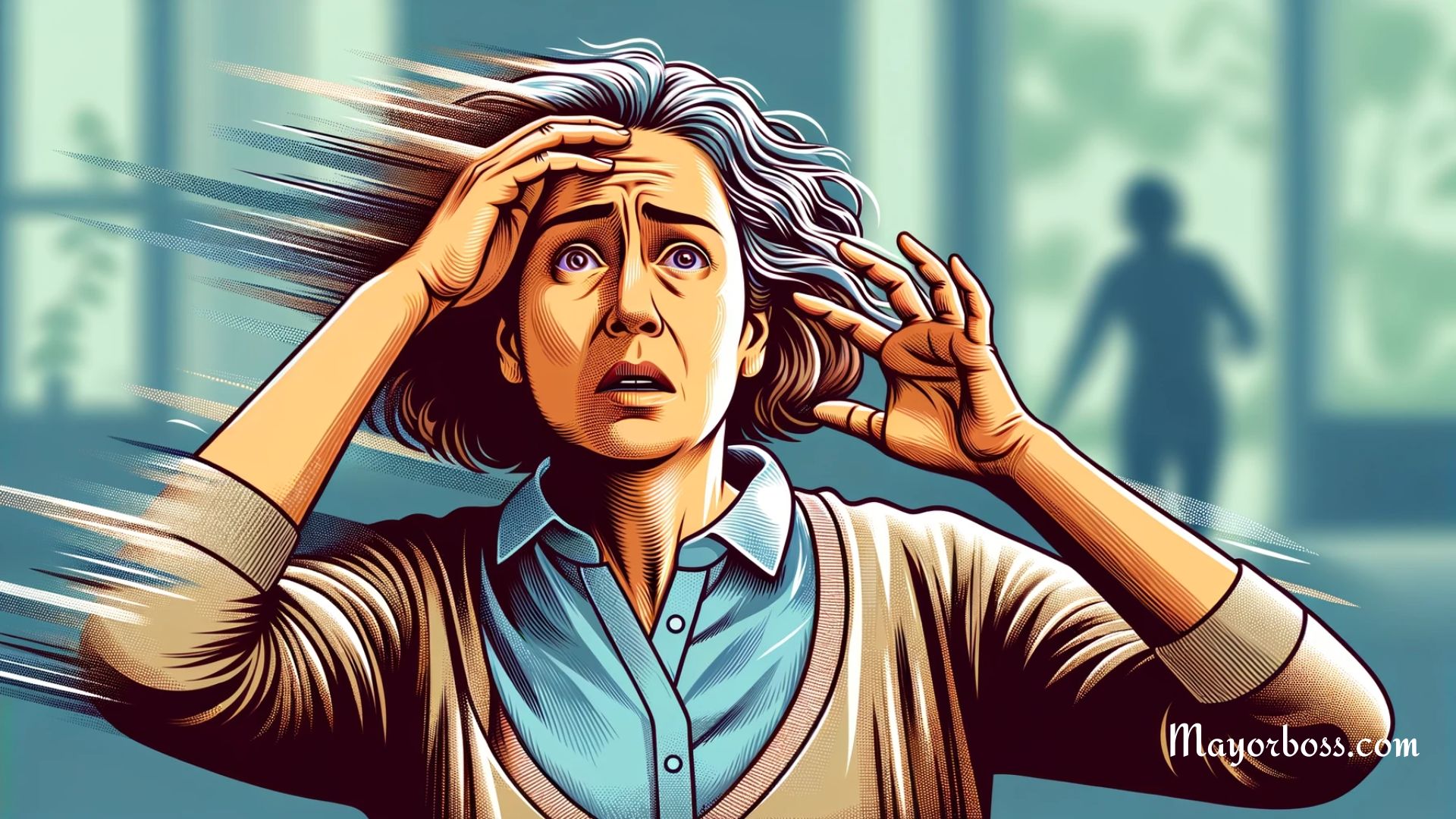20 Things That Make You Dizzy and How to Stop Them
Ever felt like you just stepped off a merry-go-round, even though you’ve been standing still? That’s dizziness for you! Dizziness is a phrase usually used to describe sensations like feeling woozy, weak, unsteady, or faint. It can create the false sense that you or your surroundings are spinning or moving – a condition known as vertigo. Picture this: you’re reading a book, and suddenly, the words seem to dance on the page, or you’re walking down the street, and out of nowhere, it feels like you’re on a swaying boat. That’s dizziness in action!
But why does this happen? Well, dizziness can stem from many sources – from dehydration that leaves your head spinning to inner ear problems messing with your equilibrium. Keep reading to learn more about common causes of dizziness and, more importantly, how to put the brakes on this spinning sensation.

1. Dehydration
When you’re dehydrated, your blood volume decreases, leading to a drop in blood pressure and a dizzy spell. Solution: Keep hydrated! Sipping water throughout the day is your best bet.
2. Low Blood Sugar
Skipping meals? This can cause low blood sugar, leaving you feeling like you’re on a rollercoaster. Solution: Eat regular, balanced meals to keep your blood sugar stable.
3. Inner Ear Issues
Your inner ear is crucial for balance. Issues here can make you feel like you’re on a boat in choppy seas. Solution: See a doctor. Vestibular rehabilitation therapy is often helpful.
4. Medication Side Effects
Many medications can potentially cause dizziness as a side effect. Solution: Talk to your doctor about adjusting your medication if dizziness becomes bothersome.
5. Anemia
Anemia, especially due to iron deficiency, can make you dizzy. Solution: Increase iron-rich foods in your diet or consider supplements after consulting with your doctor.
6. Anxiety and Stress
Anxiety and stress can trigger physical responses, including dizziness. Solution: Practice relaxation techniques like deep breathing or meditation.
7. Migraines
Some migraines come with a dizzy bonus. Solution: Identify and avoid migraine triggers and seek medical advice for appropriate treatments.
8. Blood Pressure Drops
Sudden drops in blood pressure, especially when standing up, can make you light-headed. Solution: Rise slowly from sitting or lying positions.
9. Poor Circulation
Inadequate blood circulation can leave your head spinning. Solution: Regular exercise can improve circulation.
10. Overheating and Heat Exhaustion
Getting too hot can cause dizziness. Solution: Stay cool, especially on hot days, and hydrate well.
11. Ear Infection
Ear infections can disturb your inner ear’s balance mechanism. Solution: Consult a doctor for treatment.
12. Vision Problems
Vision issues can disorient your balance. Solution: Regular eye check-ups and appropriate vision correction.
13. Aging
As you age, your sense of balance can decline. Solution: Balance exercises and staying physically active are key.
14. Alcohol
Alcohol affects your inner ear and brain, leading to dizziness. Solution: Moderate your alcohol intake.
15. Allergies
Allergies can affect the inner ear and cause dizziness. Solution: Manage allergies with appropriate medications and avoidance strategies.
16. Neck or Head Injuries
Injuries to your head or neck can affect balance. Solution: Seek medical attention and follow through with recommended rehabilitation.
17. Sleep Deprivation
Not getting enough sleep can make you dizzy. Solution: Prioritize good sleep hygiene.
18. Excessive Exercise
Overdoing it in the gym can lead to dizziness. Solution: Balance intense workouts with rest and recovery.
19. Vertigo
Conditions like BPPV cause intense, short-term dizziness. Solution: There are specific maneuvers, like the Epley maneuver, that can help; consult a healthcare provider.
20. Cardiovascular Diseases
Heart problems can affect circulation and cause dizziness. Solution: Seek medical advice for proper diagnosis and treatment.
Remember, while dizziness is common, it’s not something to be taken lightly. If you experience persistent or severe dizziness, it’s important to talk to your doctor. They can help determine the cause and the best course of action.
Sources:
